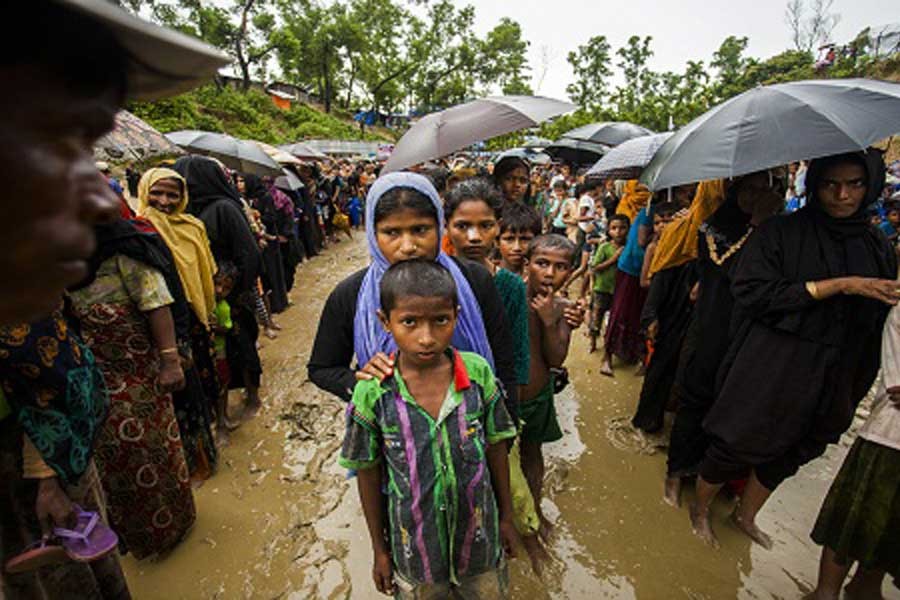The onset of monsoon rains in Bangladesh has brought further misery to Rohingya refugees living in makeshift shelters of bamboo and plastic sheeting across the Cox's Bazar peninsula, says Medecins Sans Frontieres or Doctors Without Borders (MSF) on Sunday.
The rains, which began in June, are likely to seriously affect their health and wellbeing, this monsoon season and in the future, it says.
The monsoon season is expected to continue until September.
The next cyclone season will begin shortly afterwards, in October and is likely to bring more heavy rains and further health risks, according to Medecins Sans Frontieres or Doctors Without Borders (MSF), reports UNB.
"I will never forget the shivering shirtless elderly man wearing a sack over his head to shield himself from the torrential rain, who paused work on securing his shelter to tell us of the hardships he was facing after being relocated to a new part of the camp," said Sam Turner, MSF Emergency Coordinator.
"His family had lost their food supplies during the move and been moved to the top of an exposed plateau, where they had little access to any services. The newly built nearby latrines were already overflowing and subsiding down the slope. His family was huddled inside on a piece of tarpaulin amidst a sea of mud while he laboured outside to prevent the wind from blowing their new home away."
Flooding and landslides have caused significant damage to already dilapidated infrastructure and roads.
MSF has treated people for injuries resulting from landslides. Our teams have also seen several drowning cases, after people, particularly children and the elderly, fell into ponds or pits filled with water.
Hundreds of thousands of Rohingya remain at risk of disease outbreaks, aid disruptions and complicated access to health care.
"So far we've seen relatively short but incredibly intense periods of rain, and we've seen landslides, flooded homes and homes washed off the hillsides altogether," said Ryan Bellingham, MSF Water and Sanitation Coordinator.
"The sanitation situation has only worsened, with many latrines collapsing, rapidly filling, and some overflowing. Now we see subsidence and latrine structures breaking and also being washed away by the landslides," said Bellingham.
In May, before the onset of the rains, 17,302 latrines were available for a population of 636,000 people in the Kutupalong-Balukhali mega-camp.
Partly due to poor quality of construction, more than 2,500 latrines in this camp have already filled up and this number is set to increase with more heavy rains expected.
MSF said it continues to monitor the situation. "Our teams have also begun work on constructing a facility to safely process waste from latrines, so that latrines can be emptied and made available for people to use."
MSF said it is ready to respond to emergencies such as disease outbreaks and they have set up diarrhoeal treatment centres at most of our health centres.


